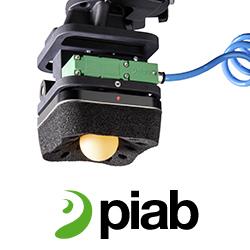Robotic Surgery Frees Sliwa of Prostate Cancer
Dr. David Samadi, world leader in robotic radical prostatectomy surgery, talks with Curtis Sliwa during Prostate Cancer Awareness Month.
NEW YORK, Sept. 29, 2011 /PRNewswire/ -- This spring Dr. David Samadi, Vice Chairman, Department of Urology, and Chief of Robotics and Minimally Invasive Surgery at The Mount Sinai Medical Center, delivered a prostate cancer cure to Curtis Sliwa, founder of the Guardian Angels. After a year of unsuccessful holistic treatments for prostate cancer, Sliwa underwent robotic prostatectomy surgery in the care of Dr. Samadi, a somewhat difficult procedure given Sliwa's prior abdominal surgeries. The two recently caught up on Sliwa's radio program to discuss the procedure and the limited exposure of prostate cancer in the press.
"Prostate cancer is a curable disease," said Dr. Samadi, "but if people don't talk about it - men and women - then we can't catch it early and treat it early." Both men addressed several key issues with regard to prostate cancer and prostate cancer treatment.
Early screening - Sliwa stressed the importance of early prostate cancer screening and the role that women play in making sure men get tested.
Accurate staging - Dr. Samadi shared that 30% of prostate cancers are very aggressive, rendering "watchful waiting" a risky proposition. "Surgery is the only way to accurately stage the cancer," says Dr. Samadi.
Treatment decisions - Prostate cancer is a disease that affects both men and women as treatment decisions can have a significant impact on a man's ability to perform sexually and control his urine. They want to know if they will be able to have and enjoy sex after prostate cancer treatment. Some degree of urinary incontinence after prostate surgery, though often short-term, is a reality of recovery as well.
Misinformation - Both men expressed concern about the disservice the media can do in sharing mixed information about effective prostate cancer treatments and potential side effects.
Robotic prostatectomy surgery - After robotic prostate surgery, a man's prostate-specific antigen (PSA) level typically remains at zero, and for someone being treated for prostate cancer diagnosis, that zero is like a golden egg. A PSA of zero means that cancer cells are undetectable.
Surgeon experience - Dr. Samadi shared two critical questions to ask when choosing a robotic surgeon:
How many cases and procedures have you performed?
Who performs the surgery? Are you in control of the procedure or do you travel from room to room overseeing others?
Radiation - Dr. Samadi clarified that radiation for prostate cancer should be used as a last resort if the surgery fails to eliminate the cancer, which, he says, is rare - or if a patient is not a surgical candidate.
Dr. Samadi conducts each robotic prostatectomy procedure himself from start to finish and has performed over 3,500 surgeries. His patients have a cure rate of 97 percent. With the precise dexterity and enhanced vision the da Vinci Surgical System robot provides during surgery, Dr. Samadi is able to spare the tiny nerve bundles that control sexual and urinary function. "None of these robots can go to work alone. It's the experience of the surgeon," Dr. Samadi stresses.
This minimally invasive procedure had Sliwa back on the air in a matter of days and now, five months later, completely cancer free with a zero PSA level. Dr. Samadi commended Sliwa for choosing robotic surgery and putting cancer behind him, "I can look straight into your eyes and say you are cured."
More can be seen from prostate cancer expert, Dr. David Samadi, who is also part of the Fox News Medical A-Team.
Featured Product

